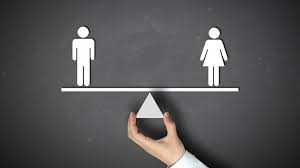Mental Health and Pandemic
Mrs.
Desai (name changed), a 60-year-old lady was recently diagnosed with covid 19. Even
after the complete recovery, she is going through sleepless nights, fear that
she would still be harboring infection, and that she might infect her kin. She is
always stressed and nervous all the day. Often skips meals and stays alone…. sounds
familiar, isn’t it? Well, the ongoing pandemic has affected the mental health
of the people in more than one way, and here we offer some insights into this
matter.
What
is this pandemic is all about?
Okay! We are not going to bombard you with the
same, scary, technical jargon you have been hearing for an year now. In short,
Covid 19 is infectious disease which is causes by coronavirus. This affects your
respiratory tracts such as nose, throat, sinuses windpipe and lungs. It is
known to cause illness varying from the common cold and fever to more severe
illnesses such Severe Acute Respiratory Syndrome (SARS). Due its rapid global
spread, it has been declared as pandemic.
How
pandemic has affected on Mental health?
The
pandemic has not just affected one’s physical health but mental health causing stress,
anxiety and stigma. It has a crucial impact on individuals and the society
experiencing a numbering of pandemic related consequences such as loss of income,
isolation, social distancing, closure of workplaces, educational institutions
and entertainment places, unemployment and on the top of it, loads of
misinformation in media. All these can trigger an array of mental health issues
starting from sleeplessness to anxiety disorder to psychosis.
On
the other hand, there is a high risk of infection and severe outcome to people
with preexisting mental and neurological disorders as they are more vulnerable
to SAR- COV-2, due to various reasons.
So,
what is the way out?
By
now, we know how the pandemic is affecting our mental health. Here are healthy
ways to cope with stress and maintain our mental well-being.
· Stay
connected - Talk to people you trust on regular basis. Share your concerns and
feelings (off course following social distancing or over phone)
·
Try to take breaks from
social media (avoid as much as possible!!)- try to spend much of the time with
your family rather than listening to media which covers upsetting news
· Don’t believe
everything you come across in social media. Check the facts from reliable
sources and consult your doctor in case of some doubts.
· Take
time to unwind - Involve yourself in fun activities or hobby.
· Exercise
regularly. You can walk with a mask on, in a non crowdy park of ground.
·
Practice yoga - Yoga
helps in calming mind and body.
Dr.
Bheemsain Tekkalaki, consultant Psychiatrist
Mrs.
Aishwary Patil, Clinical Psychologist
Sumana
Psychiatry Center, Belagavi (9164137499)
www.sumanapsychiatrycenter.com


Comments
Post a Comment